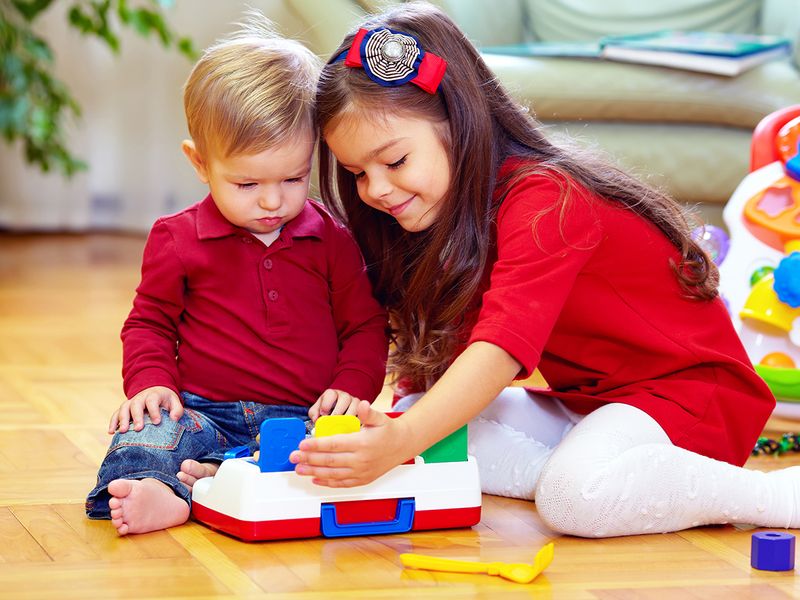
Dubai-based Radhika Jaiswal, a public relations professional is often called ‘bossy’ by her four younger siblings. Explaining her story, she says that after their father passed away when she was just fifteen, she ‘had to step up’ and help her mother bring up the other three children. “My mother used to fall ill quite often, so it was just me sometimes, getting my brothers and sisters ready for school, preparing food for them and even scolding them about homework,” she remembers. She loved looking after them and still enjoys helping the younger ones with work, or even something like shopping for clothes. “They follow me around everywhere; they know if I scold them, I’ll also shower them with love,” she adds.
She admits that her commanding nature isn’t just restricted to her family: Her friends often complain when she takes on the responsibility of planning trips and holidays. “I’m the one with all the excel sheets and planning ideas. I guess, I do have the elder child syndrome,” she says.
Taking on responsibility at a younger age can leave a profound impact. Another elder child shares a similar experience: Lily Smith (name changed on request), an Abu Dhabi-based British homemaker. “My twin suffered from meningitis when we were in childhood, and it affected her cognitive and intellectual development. Since then, somehow, I felt there were more expectations from me and I just took on the role of household tasks, ensuring that I did well in academics and would be worried when I didn’t perform well,” she says. As a result, she is still rather anxious when things don’t go according to plan. “I start worrying that I have failed and let people down.”
‘It’s an elder child thing’

It’s an elder child thing, as Smith and Jaiswal both appear to say. Farah Dahabi, a Dubai-based clinical psychologist explain what this syndrome really is, “It isn’t a psychological diagnosis. It does describe a common experience among eldest children, characterised by shouldering higher levels of responsibility within the family. It can include providing emotional support, managing household tasks, caring for younger siblings, often leading to intense feelings of duty.”
According to Rebecca Walsh, a Dubai-based British psychologist, being the elder child comes with its set of upsides and downsides. Speaking about the advantages, she says, that they learn to delegate, motivate, and make decisions. “They may also often develop a sense of independence and mature quicker than their younger siblings,” she adds. Raising the younger siblings could also lead to them developing a caring, nurturing nature. “Such care and affection could lead to deep, nurturing bonds with the younger ones. The common traits observed in eldest children include strong leadership qualities, reliability, perfectionism, achievement orientation, a tendency to be assertive, a caring nature and being more risk-averse,” she adds.

The elder child syndrome isn’t a psychological diagnosis. It does describe a common experience among eldest children, characterised by shouldering higher levels of responsibility within the family. It can include providing emotional support, managing household tasks, caring for younger siblings, often leading to intense feelings of duty...
However, the eldest child’s identity and self-worth are often connected to their strong desire to care for and take responsibility for their family, which leads to a struggle to find space to meet their own needs, explains Dhabi.
‘Parentification and a conflicted sense of self’

According to Walsh, being the eldest sibling can take a toll on a child's emotional development and sense of self. Maturing quickly due to early responsibilities, they may end up acting as parents to younger siblings. This is called parentification, a situation where a child takes on a caregiver role, often due to overwhelmed parents. Feeling pressured to fulfill this role, the child may struggle to discover their own identity outside the family dynamic. Walsh elaborates further, “So, they run into conflicts with others and many a times, they’re unable to maintain long-term healthy relationships. They feel out of sorts when someone else assumes responsibility. It’s as if something vital in them has been taken away.”
Theories and studies
Some theories suggest that firstborn children benefit from an initial period of exclusive parental attention. This early focus could contribute to them reaching developmental milestones sooner, particularly those related to intellectual and academic abilities. A 2009 US-based study titled Are firstborns really smarter? A review of studies of birth order and cognitive development, published in the Psychological Bulletin found some evidence that firstborn children tend to score slightly higher on cognitive tests around the age of four compared to their younger siblings.
In another 2018 study, published in the US-based academic journal Developmental Psychology, the study found some evidence that firstborn children had a slight advantage in early academic skills compared to later-born siblings.
However, both studies found these advantages might disappear in adolescence, and also relied on subjective parental reports. This raises the question:
Does your personality depend on your birth order?

The evidence is rather unclear and inconclusive on the impact of the birth order on a child’s personality and development.
Australian doctor and psychoanalyst Alfred Adler is usually credited with the origin of the theory of how birth order affects personality. Dahabi explains his theory: “Firstborns, middle children, and youngest children each exhibit distinct personality traits based on their familial roles. Alfred Adler's theory suggests that birth order can influence a child's approach to family dynamics. Firstborns and youngest children might strive for success and dominance in different ways, while middle children may develop more easy-going personalities or a rebellious streak.”
However, the studies to back these claims are rather scant. According to a 2015 US-based study published in the Journal of Research in Personality, it was found that oldest siblings were more conscientious, outgoing, and generally agreeable than younger children. The difference in personality traits between oldest and younger siblings were "infinitesimally small", according to study researchers.
As Dahabi explains, “Instead of seeing this as the effect of birth order, considering that the eldest child and the youngest child have different parenting and a different set of family dynamics is more accurate. Parents can also be more strict and demanding with the eldest, and more relaxed and permissive with the youngest.” She also explains that the age of the parent also matters, when they have their eldest child, compared to when they have their youngest. “The wisdom one brings to parenting is different in each decade, impacting the child and family dynamics.”
Shifting perspectives…
While the term "elder child syndrome" often takes centre stage, psychologists point out it's more of a colloquial term. Niharika Sinha, a Dubai-based homemaker, explains from the perspective of a younger sibling.
She spent several years resenting her elder sister, who was eight years older than her. “She was good at everything that she did, and I struggled with academics, and so, my parents would always compare us. I was angry and rebellious, and so we had really troubled times at home. They allowed her more freedom to do whatever she wanted, while being stricter with me. Years later, when relationships between them became strained and sour, they expected me to make peace between them, and I had to play mediator. It was incredibly stressful, because everyone suddenly wanted me to play adult and expressed anger when I couldn’t fix things. I had to step away from these politics and limit my communication with all of them for my own mental health,” she says.
On the other hand, Nilesh Nambiar (name changed on request), a marketing professional from Abu Dhabi, recalls feeling particularly alone and neglected after his younger brother was born. This deeply rooted feeling led to years of insecurity and just believing that he wasn’t worthy of time and attention. “My brother is just that good at everything that he does; he’s warm and friendly, so people love him immediately. I grew more laidback and lethargic with my studies and later, even with my career, for a long time. I think, I just began believing that what I did, didn’t matter enough or amount to anything.” Gradually the listlessness ebbed by his thirties, after he began to switch jobs, and friend circles, all of which somehow boosted his image and confidence. “I still have feelings of low self-worth, but I am working on not blaming anyone,” he says.
The bigger picture
In summary, while the idea that birth order influences personality has been thought to be the case historically, large scale studies and such experiences show that the effects of birth order are minimal at most, explains Dahabi. “Parenting styles plays a significant role, influencing personality through nurturing, discipline, and attachment styles. Culture further shapes personality by instilling societal norms and values. Education and peer relationships refine social skills and self-esteem, while significant life events like achievements or trauma leave lasting impressions on an individual,” she says.











